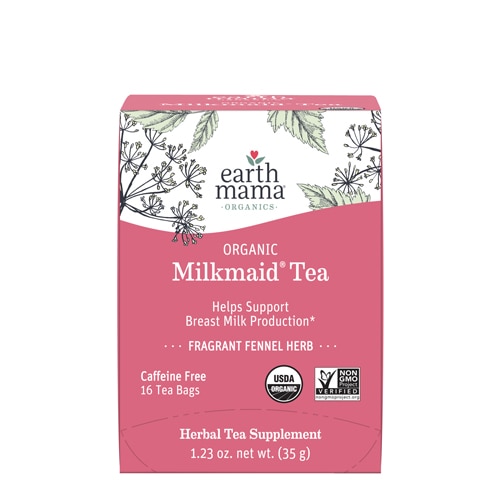There are few things in life as thrilling as holding your newborn child. But with that rush of love also arrives a fierce desire to do everything in your power to protect your little one. One of the best ways you can safeguard your child? Nourishment. The nutrients you give your nursing baby are vital to his or her strength and development—and key to your stamina and stability. Here are 7 things you can do to improve a diet for breasfeeding mamas. :
1. Eat enough calories
Post-delivery, you might be tempted to shed the baby weight as quickly as possible, but now is not the time to cut calories and count fat grams. Depriving yourself of nutrients and limiting your caloric intake can sap your energy, impact your milk supply and harm your darling’s development.
Far more important during this time is providing you and your child with ample supplies of energy and nutrients. (Indeed, one of the beauties of breastfeeding is that you end of burning calories without having to hit the treadmill.) Eating adequate calories is crucial—after all, your body is working around the clock to produce healthy breast milk. Strive for a diet that’s rich in protein, vitamins, and nutrients, listen to your hunger cues, and hydrate. Still determined to get into those pre-baby skinny jeans? Hit the treadmill for real and be patient—it’ll happen naturally.
2. Avoid high-mercury seafood
You passed on sushi during your pregnancy, just waiting for the day when you could dive into a platter of fresh sashimi.
But before you shine your chopsticks, know this: breastfeeding mamas aren’t quite out of the clear. High-mercury seafood—which is found primarily in swordfish, shark, and king mackerel—contains PCPs that may be toxic for you and your sweet pea, and it's high on the list of foods to avoid while breastfeeding.
And yet, the chief nutrients in fish—omega-3 fatty acids, iron, and essential amino acids—are fundamental to your baby’s health. In fact, the only DHA (an omega-3 fatty acid that’s central to your child’s brain and vision development) your little one gets comes from your breast milk, rendering fish one of the most important dietary choices you can make. Reap its many rewards by choosing low-mercury options such as tilapia, shrimp, and salmon instead. And to further support your baby’s burgeoning smarts, consider taking fish oils. Brimming with potent antioxidants, they naturally foster eye and cognitive development while improving your mood and memory.
3. Go organic
“You are what you eat” has never had more relevance than while you're nursing. From strawberries to squash, everything you consume can influence your child’s growth—including the pesticides, hormones, and antibiotics frequently found in non-organic foods. Selecting proteins and produce that are organically harvested is one of the choicest ways to promote proper development and well-being.
What’s more, organically grown goodies generally possess a higher nutritive content than their non-organic counterparts, providing sprouting sweethearts with critical vitamins like calcium, potassium, and magnesium without the risk of potentially damaging chemicals. Clean eating has never tasted better—nor done more good.
4. Ease digestion
A fussy child inevitably makes for a fussy mother—even more so, perhaps, when we realize that what we’ve eaten may have given our baby a bellyache.
Gas, bloating, and constipation can be agonizing for an infant and equally agonizing for you. The good news is that these symptoms can be managed through modifications to your diet. Carminatives—herbs that naturally support healthy digestion—can soothe the discomfort that infants occasionally experience, while also organically enhancing breast milk production. Dill, fennel seed, and rosemary are delicious carminative herbs that you can easily sprinkle into your dishes, while a steaming cup of peppermint or chamomile tea can be a salve to both stomach and spirit.
5. Be cautious with cruciferous vegetables
Broccoli, cauliflower, cabbage, Brussels sprouts—these flavorful veggies are nutritional powerhouses, jam-packed with vitamins that range from folic acid to zinc. But as tasty and healthful as they may be, they can also cause tummy trouble for your tot.
Why? Your baby’s gastrointestinal tract is brand spanking new, making digestion an enormous task for them. Cruciferous vegetables—which, let’s face it, are hard for adults to digest at times—can generate gas and other forms of discomfort. Reaching for other veggie delights like carrots and spinach, or limiting your intake of cruciferous vegetables, could alleviate your baby’s stomach woes—and reward you with one of their heart-melting smiles.
6. Curb caffeine—or dodge it altogether
Between the two a.m. feeding times and seemingly endless diaper changes, being a new mom is tough—and tiring. You may want to be intravenously fed a steady supply of high-voltage caffeine—not to mention ten minutes of quiet to enjoy a cappuccino—but steering clear of caffeine (or limiting your intake) is one of the smartest things you can do for your newborn.
While only a small percentage of the caffeine you consume makes its way into your breastmilk, babies—particularly those under six months old—are super sensitive to it, which can accumulate in their systems and lead to sleep problems and agitation. If life is just plain unbearable without your daily cup of joe, exercise restraint and aim to breastfeed after a fair amount of time has passed since you last dipped into that bag of espresso.
7. Diversify your diet
Ever wonder why you have a penchant for pad Thai, or an aversion to artichokes? Chances are it has more than a smidgen to do with what your mom ate while she was breastfeeding.
Research reveals that what mothers eat when they’re pregnant and breastfeeding has a notable impact on their baby’s taste buds—and the more diverse the diet, the more game your baby will be to trying novel foods when she’s older. In other words, you have the power to shape their preference for wholesome food later on in life. Which, come to think of it, might just be the greatest gift a mother can ever give her child.




